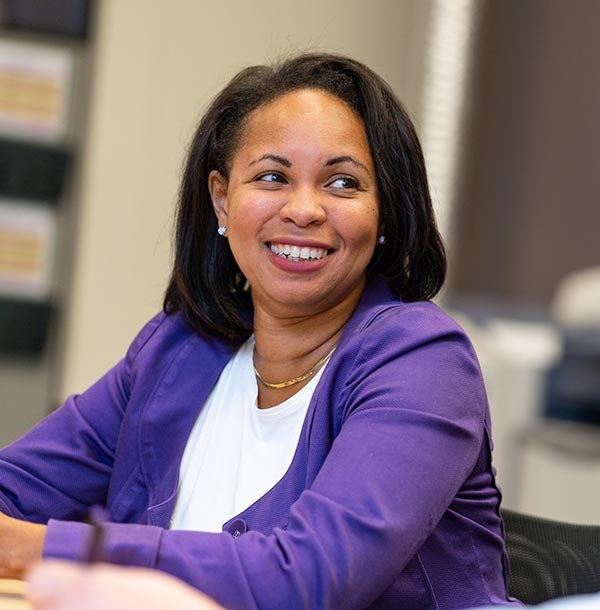College choice expert outlines students’ choices for fall
With this year’s high school seniors and other potentially college-bound students facing an even more complicated decision due to changes related to COVID-19, many are weighing non-traditional options and pathways.
Dr. Crystal Chambers, associate professor of educational leadership in the ECU College of Education, whose research centers on college choice, said students and their families have been affected by the virus and its impact on everything from household income to educational delivery methods, but that resources are available to help them decide on the right course.

Dr. Crystal Chambers (Photo by Cliff Hollis)
Colleges and universities have expanded online offerings, but many students learn best in an in-person format, and others simply prefer it, she said.
“I can see, as a parent, being a little bit fearful about sending your child away to college. But there are ways around that,” she said. “One, you could send your child to a school that’s closer to home. In North Carolina, that’s easier to do because with the community college system, we have extensive options that are regionally dispersed, so you can, if you want to, have your child at home for that first-year experience, whether it’s at a two-year or four-year institution.”
Chambers said the alternatives to enrolling in college have changed as well. Competition has increased for entry-level jobs, and those that are available may result in the same exposure to the virus that the prospective employee was trying to avoid by delaying college. And with travel restricted, a gap year may not be the positive and engaging experience it should be, she added.
For those who are enrolling in college in the fall — or want to — Chambers said it’s important to contact the institution’s financial aid office to discuss any changes in the family’s financial situation.
“I do truly feel for the families whose financial worlds have been upended,” she said. “If you’ve already put in your financial aid form based on one set of income, and now you have another set, this is the time, now, to go ahead and call your financial aid officer and say, ‘I have had a change of circumstance. I need you to reconsider my financial aid package.’”
Many schools now have money available to help students on the basis of need using funding from the Coronavirus Aid, Relief, and Economic Security Act, she said.
Chambers also encouraged students, both on campus and online, to get and stay involved for the best chance at success. “Engage with your classmates. Engage with your professors to make the most of your experience,” she said.
Chambers received a 2018 Andrew Carnegie Fellowship to study how rural students across the country make decisions about college. She has advocated for, encouraged and supported students in helping them to see college as a possibility throughout her career. She serves as the vice chair of the ECU Faculty Senate.
###
ECU News Services
Howard House, 1001 E. Fifth Street
Greenville, NC 27858
ecunews@ecu.edu
Phone: 252-328-6481
news.ecu.edu
Contact: Jules Norwood, ECU News Services, norwoodd15@ecu.edu
Telephone: 252-328-2836
NOTE TO MEDIA: Dr. Chambers is available to discuss college choices and the challenges facing this year’s high school seniors.